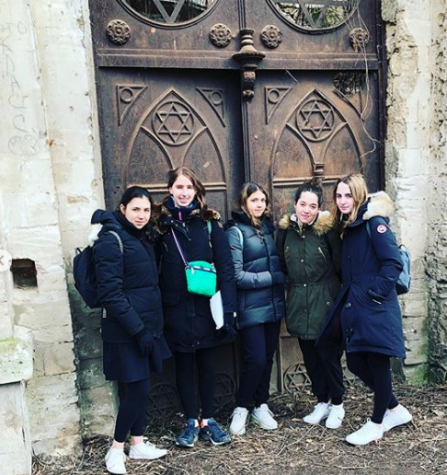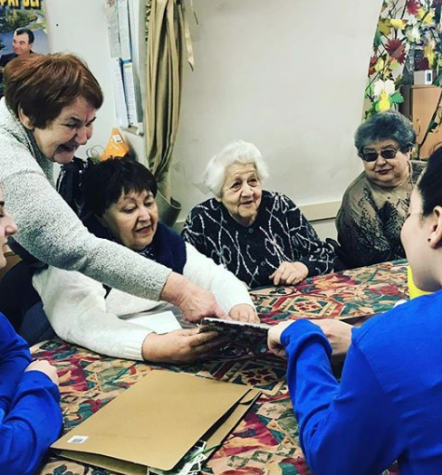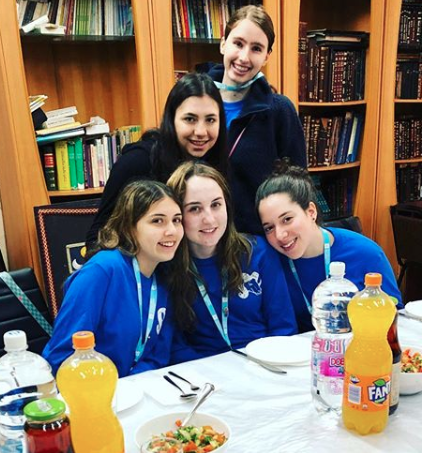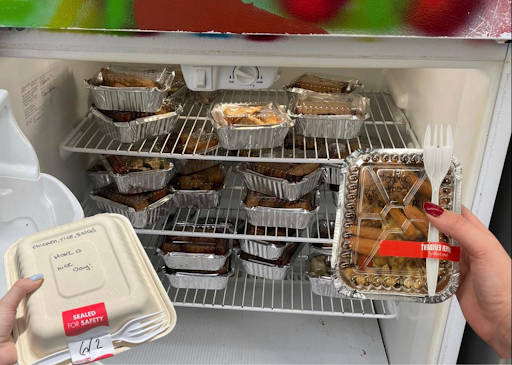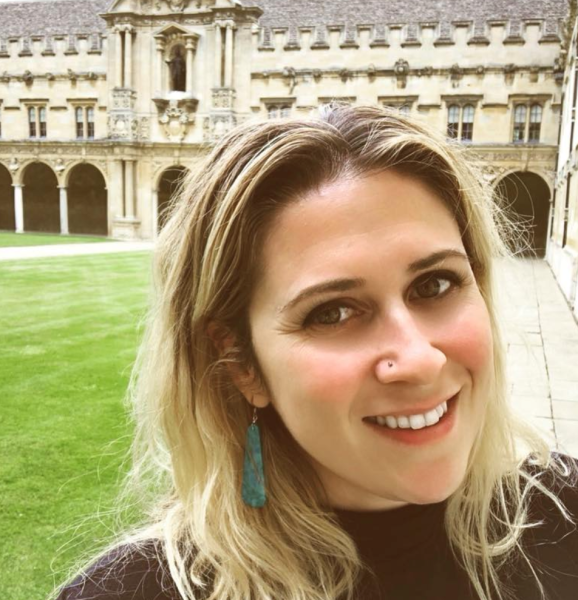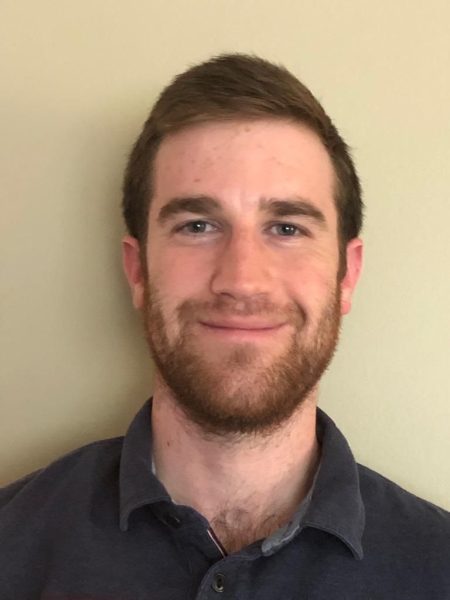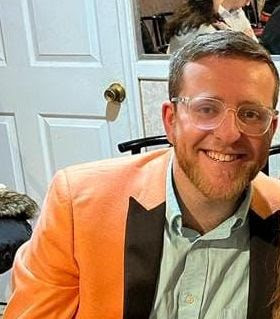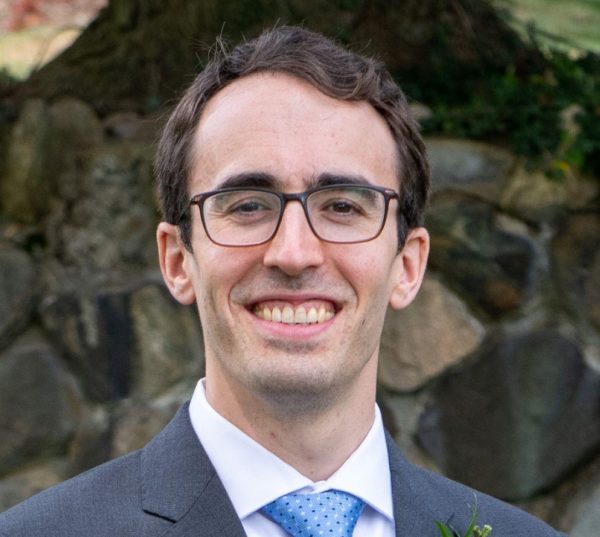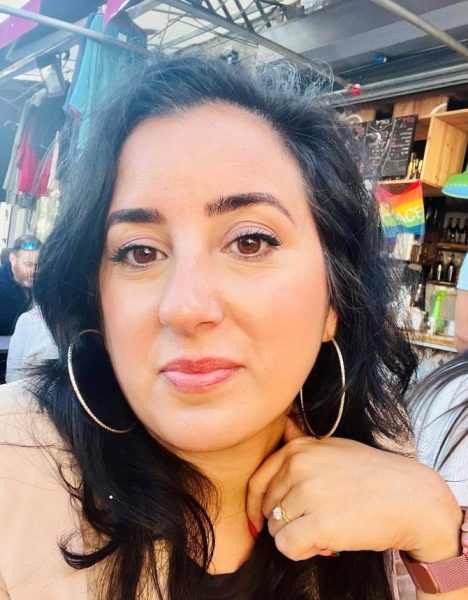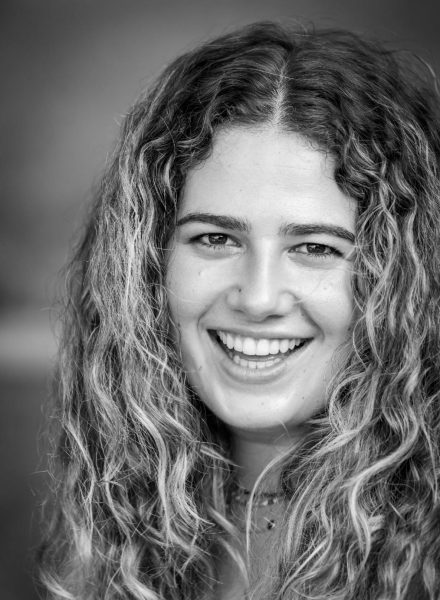Being Happy With What I Have: My Experience on the Mission to Moldova
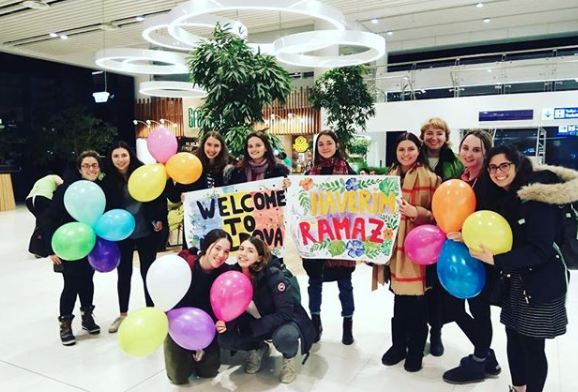
Warmth and chills; smiles and tears; laughing and crying; giving and receiving; support and emptiness. These words are the only way to describe my experience on the Ramaz February Break Mission to Moldova.
The Jews of Moldova are among the poorest in the world. Without the support of the Jewish Distribution Committee (JDC), they would not survive.
I went on this mission with the hope to bring chizuk – strength – to the Moldovan Jews. Led by Ramaz Tanakh teacher Ms. Tammie Senders, my friends and I rolled suitcases full of American gifts through JFK with the expectation of meeting depressed, poor people, totally disconnected from their Judaism, planning to reconnect them with God. However, I could not have been more wrong. From their smiles, one could never guess the hardships and pain they each endure. Throughout our seventy-two hours in Moldova, we spent a lot of time with the elders; some moments were heartbreaking, some full of joy, but most of them were a mixture of emotions.
On the first day, I was shocked when we walked through the Kishinev Jewish Cemetery. I anticipated that the Jewish cemetery would resemble the ones I have seen in Long Island, mostly freshly cut grass and clean tombs arranged in neat rows. Instead, the cemetery was littered with broken, smashed, and chipped tombstones, some of which dated back to the Kishinev pogroms or the Holocaust. Some of the tombstones were encircled with metal gates for protection, but to me, they felt more like cages. We also saw the grave of Torahs from the Kishinev Pogrom of 1903. Under a large tomb with luchot engraved in it, there was an area where the holy scrolls were buried. Vandals had desecrated the cemetery. It did not look tranquil or peaceful; instead, the cemetery looked harsh, and not a place in which I would ever want to bury a loved one. It was the embodiment of the pain of Moldovan Jewry.
According to Elisheva Massel, a member of the JDC with whom we traveled, the organization has been restoring the cemetery, clearing away the trees and making the engravings on the tombstones legible again. The truth is that the cemetery currently looks miserable, but the fact that Jews today are coming back to restore it is incredible. The hope that Moldavian grandparents, parents, and children will be buried in a more tranquil environment while staying among their ancestors from centuries ago is a gift, one which I will never experience in America.
We visited the homes and apartments of several residents. Each one taught a different life lesson. Iraida Gotgelf, the 95-year old survivor of Siberia, who lost her husband and son, and is now being cared for by the JDC, explained that destiny gives everyone different challenges, but you have to fight against them with a smile. That is the only way to survive. Chaka Katz, an 88-year old Holocaust survivor who lives in a home with no running water explained that with her health, she feels like she can do anything. Although physically frail, Chaka’s smile was robust and her love filled the entire room.
On a visit to a group of elderly women who participated in the JDC programming in Kishinev, we saw tattered and faded pre-war pictures of the womens’ families. One pointed to a picture of her mother. I could hardly tell it was a photograph, the lines which made up her mother were so faint. I could never imagine not being able to see my mother’s smiling face again, even in a photograph.
These women gave us gifts of decorated ceramic bells, carefully embellished with tiny dots making up flowers. Clearly, they had invested so much effort into making those gifts. Nora, the host of the group, told us to ring the bells in New York and know the Moldovan elders are with us. They also gave us bracelets with hearts and butterflies. “You are always in our hearts,” said Nora. These modest gifts were among the nicest I have ever received; they were created with such care and thought. The elders could hardly leave their houses, yet they worked hard to make beautiful creations to give to us.
In Kishinev, we attended a Klezmer Concert. Similarly, in Beltsy, we sang Hebrew songs like “Havah Nagilah,” with the elderly. Some of the Jewish tunes we recognized; others were new to us. The music was lively and spirited. We all jumped up to join in the Moldovan dances. The spirit in the room was contagious. Hand in hand with the Moldovans, a smile spread across my face. Reflecting, I realized that these dancers, from teens to the elderly, each encountered hardships that I could never imagine; regardless, they all danced and celebrated life.
Going into the trip, I expected to hear painful stories from the elders. I could never have imagined, however, the horrible stories I would hear about the lives of teenagers. We trudged through the mud to a two-room wood and plaster house in Beltsy which had an outhouse and a well in the back. There we met Alexander Dunaeva, 18, who lives with his sister Tatiana, 16. Their father died, and their mother works in Moscow to make money to support them, while the two siblings have been on their own here for five years. Alexander was just like me — he worked hard in school, planned for his future, loved his sister, hung out with friends, and even shared the same name as my brother, but our lives were so different. In spite of his hardships, Alexander smiled and told us he is “happy.” He showed us pictures of his family. Alexander appreciates all that has, from the fresh water to the love and support he receives from the JDC. To me, Alexander embodied the true definition of appreciation.
We visited the Jewish youth club of Beltsy, PikaJew, and danced with the teenagers there. Even though it was freezing outside, the warmth and excitement they expressed while teaching us the American-style dances enveloped the room. “We come here almost every night,” said one girl. Without her saying more, I knew exactly why – most of these teenagers live in houses like Alexander’s, rundown structures with no running water. This is their sanctuary, where they come to feel love and community.
In Kishinev, we spent a lot of time with Haverim, their Jewish youth club. We played icebreaker games, performed a flash mob, and laughed together over dinner. While eating, one of the girls told me about her experience with anti-Semitism. She had a friend with whom she shared secrets and laughed for seven years until the day he discovered her Judaism. He told her they could no longer be friends because he hated Jews. “I understand,” she had said. “But we have been friends for seven years. This is different, I’m not just any Jew.” It did not matter to him – a Jew is a Jew, and the friendship was over.
Her story contained no violence. It was not the forms of antisemitism I hear about on the news – spray-paint on sukkahs, shootings in shuls – yet hearing this girl’s story was heartbreaking.
We ended that night with “Shema Yisrael” and “Mah Tovu.” These songs are probably among the few Hebrew words the Moldovan teenagers know. Most of the teenagers only discovered they are Jewish just a few years ago. They are not very religious, yet they turn to God with love and appreciation for all they have.
The songs we sang with the teenagers were ones with which I was raised. I was never taught the words, I just absorbed them over the years. Never in my life have I appreciated the strong Jewish life into which I was born as much as I did that night.
The Mission to Moldova taught me so much. I learned only the beginning of what I have to appreciate in life – my family, my community, my house, my food, my Judaism. I learned about the relationship between all the Jews in the world. Although communicating was not easy, we shared songs and dances and felt like family. The Jewish community is so much larger than my friends at Ramaz or the families I know. This trip taught me that we are part of a larger Jewish community centered around God. We are burdened with the responsibility of one another.
Most of all, this trip taught me the truth behind a quote from Pirkei Avot, “Who is rich? One who is happy with what they have.” Alexander has so little. His home is in ruins, he does not have running water or a bathroom, yet he is happy. You can be the richest person in America or exceptionally poor in Moldova, have a huge family or a few close friends, and daven three times a day or barely know anything about your Judaism, but none of these defines happiness. In the end, you must decide for yourself: Do I want to be satisfied – to be happy? Who is rich? One who is happy with what they have.” Alexander has so little. His home is in ruins, he does not have running water or a bathroom, yet he is happy. You can be the richest person in America or exceptionally poor in Moldova, have a huge family or a few close friends, and daven three times a day or barely know anything about your Judaism, but none of these defines happiness. In the end, you must decide for yourself: Do I want to be satisfied – to be happy?
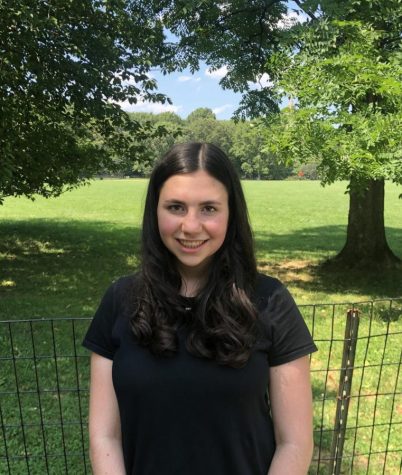
Rebecca Massel has been a journalist since lower school and is excited to be an editor-in-chief of The Rampage. She has been an active writer for the paper...

